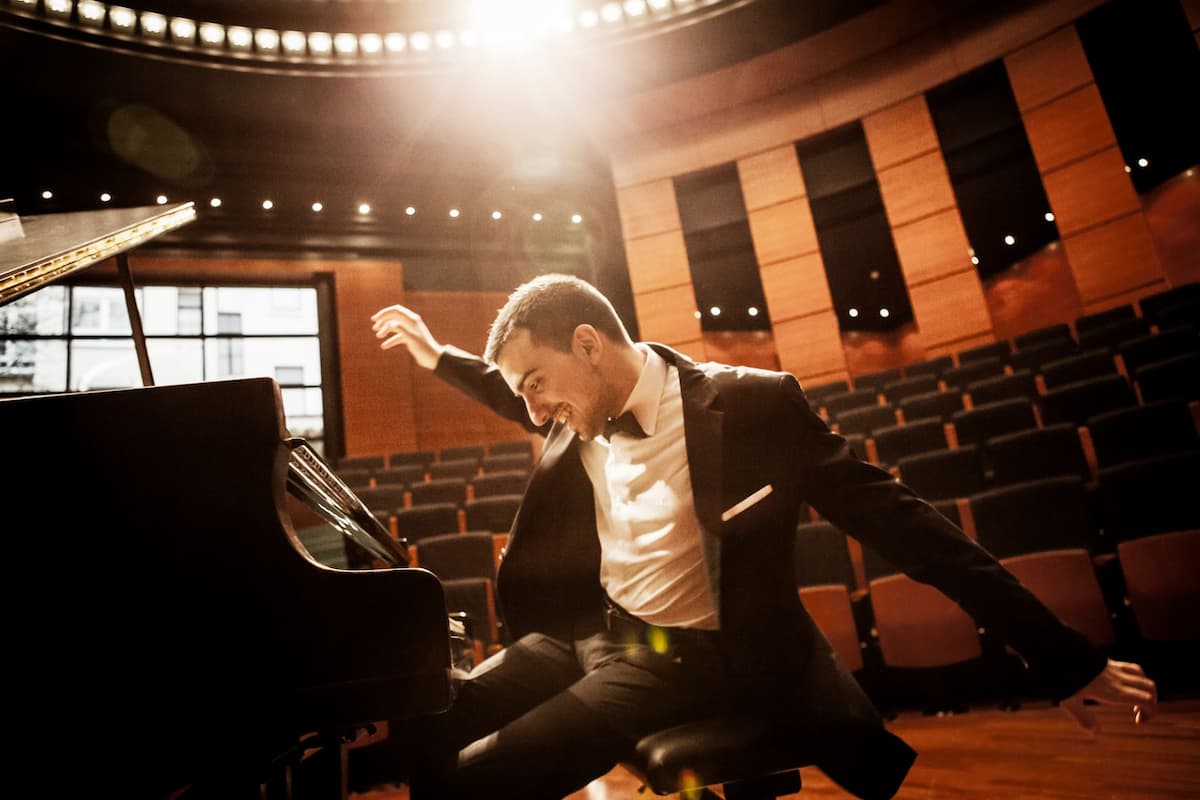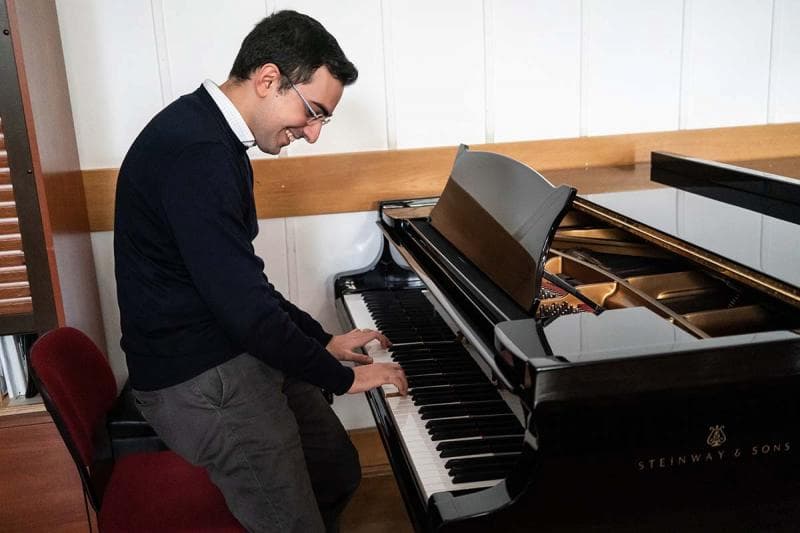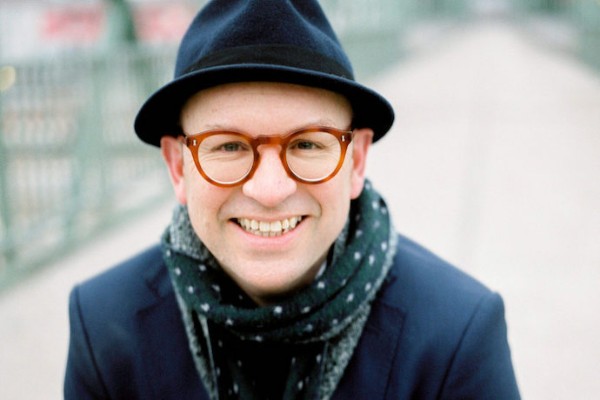Meet Alberto Ferro, an Italian pianist who has been a prize winner in many prestigious competitions. To name a few, he was awarded the first prize and Audience Prize at the International Telekom Beethoven Competition in Bonn (2017) and the second prize winner of the International Press Prize and Haydn Prize at the “Ferruccio Busoni” International Piano Competition in Bolzano (2015). Many thanks to one of our readers who wrote and suggested we feature Alberto Ferro. In this interview, Alberto Ferro not only shares with us his musical journey but also how to practice perfecting his performance on stage.

Alberto Ferro © Don Hannen
Hello, Alberto. It’s nice to meet you! Your biography is very impressive at such a young age. Could you tell us a bit about yourself growing up? How did you start playing the piano?
Hello, nice to meet you too! I started to play the piano when I was three years old. It was very natural for me. My mother also plays the piano, and she let me get involved in the music. So, the piano was “already” at home before I was born! At an early age, the piano was like a toy for me, and while growing up, it became a passion, and nowadays, it’s everything in my life. I can’t live without the piano. My musical growth was gradual. I entered the conservatory when I was 7, and I have always learned “in crescendo,” luckily without problems during my path. I had some difficulties in some periods but always solved them. At the age of 14, I performed with the orchestra for the first time, and since then, I have understood that I have found my way in this life: it’s piano, it’s music.
You have so much experience in performing. How do you deal with memory slips due to performance anxiety?
Of course! I practice a lot in many ways so that memorizing scores will be automatic. First, I analyze the score: I study the shape of the work, the history of the composer and the composition style, and the harmonic progressions. Then, I listen to many interpretations to develop my ears and “sing” every note in my brain. Last, I practice fingerings on the keyboard, which helps to memorize. So, the process is due to a combination of many aspects, which is the standard “preparation” for a public performance. About anxiety, I forced it through the experience, and nowadays, it has disappeared during my concerts because I always enjoy my performing time, thinking about the beauty of the music and sharing my love for the music with the people who attend my concerts.
You released a few albums, including the complete set of Rachmaninoff’s Études-Tableaux, Op.33 and Op.39, and the complete set of Liszt’s Soirées de Vienne, S.427. These two albums were released in 2020 and 2021, respectively. What inspired you to choose these two complete sets for recording? And what was the recording process like?
Sergei Rachmaninoff: 9 Études Tableaux Op.39: No.8 in D minor
Regarding Rachmaninoff’s Études-Tableaux, I completed the two opuses in 2013, thanks to my teacher, Epifanio Comis, who specializes in Russian music, particularly Rachmaninoff. So, for around two years (2012-2013), I worked on all the Études under the guidance of my teacher, who inspired me to discover the poetry of this great Russian composer. We worked on considering these 17 Études as 17 paintings (Tableaux, in French). Since my first recital performance (Moscow, 2013), I have continued to play them at concerts and competitions. In 2020, I decided to record the Études-Tableaux because I felt I had already matured the interpretations. About Liszt’s Soirées de Vienne (d’après Schubert), I chose these waltzes because I like the elegance of these compositions and because there are not many interpretations and recordings of them. Most of the pianists perform only Soirée No. 6, but I think that all nine are very interesting. The recording process is particular and very formative because, at first, it helps to get the works better and fix every single note by repeating the passages.
Do you have any upcoming performances that you can share with us?

© albertoferro.eu
I would like to share my upcoming performances: on the 17th of April, I will perform Rachmaninoff Piano Concerto No. 2 with the Albanian Radio and Television Symphony Orchestra in Tirana, and on the 21st of April, I will give a piano recital in Stuttgart. In the following months, I will also give other recitals and chamber music concerts in Italy, Spain, and Germany.
What do you like to do when you are not playing the piano?
I like spending time with my family, visiting museums, watching movies, and playing football and tennis. I also like to do flight simulations.
Learn more about Alberto Ferro.
For more of the best in classical music, sign up for our E-Newsletter




